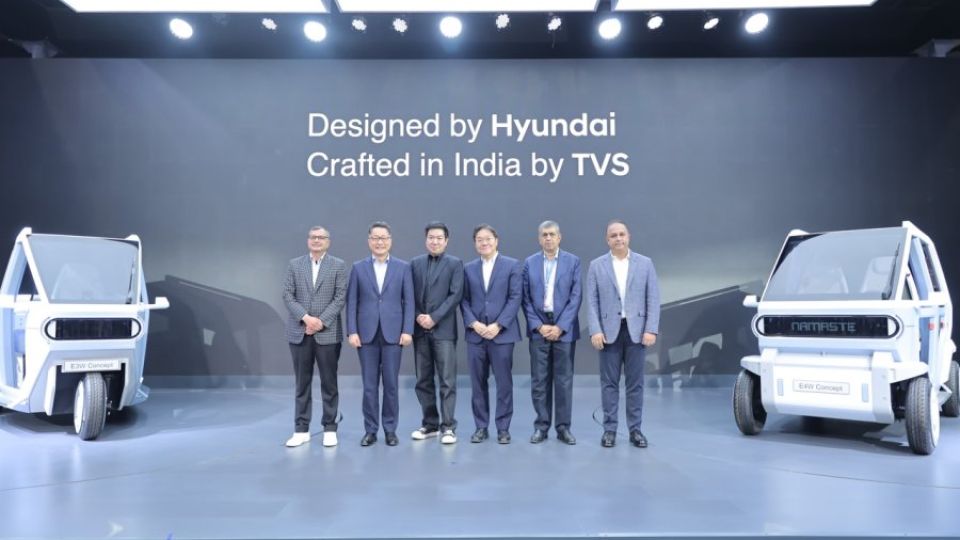January 20, 2025
SEOUL – Hyundai Motor Company said Sunday it has unveiled concept versions of its electric three-wheeler and micro four-wheeler at India’s Bharat Mobility Global Expo, ramping up its expansion efforts in the world’s third-largest car market.
Recognizing the widespread popularity of micromobility in India, where ultra-compact vehicles are often favored for last-mile commuting on congested roads, the Korean auto giant has vowed to offer enhanced driving performance and safety compared to competing models.
The advanced features of these vehicles include angular windshields for better visibility and collision protection, flat floors and a wide wheelbase to improve passenger comfort, which typically falls short in other cars in the same segment.
With its focus on developing vehicles tailored to withstand India’s high temperatures and heavy rainfall, Hyundai Motor is also considering using heat-reducing gloss black paint on the roof as well as water-resistant materials for seats, steering wheels, dashboards and other interior surfaces.
Other interior components include adaptable storage solutions, a slim cluster design for intuitive information display, a phone holder to enhance connectivity and pegboard-inspired panels for hanging tools to free up cargo space. The three-wheeler EV concept car could be used for transportation, logistics and emergency services, featuring towing hooks and folding seats for wheelchair users. The vehicle’s adjustable height allows it to maneuver through waterlogged streets.
During the auto expo, Hyundai Motor announced a strategic partnership with TVS Motor, an Indian three-wheeler manufacturer. Under this collaboration, Hyundai plans to lead vehicle design and development, while TVS Motor will carry out local production and sales. Initially, the partnership will focus on producing three-wheelers, with plans for developing four-wheelers as part of a strategy for global expansion.
“The (micromobility) concept cars are customized for last-mile and shared mobility in India’s traffic environment,” said Lee Sang-yup, executive vice president and head of Hyundai and Genesis Global Design. “Hyundai is committed to adopting customer-centric designs and will continue to contribute to the mobility ecosystem in India, thereby enhancing the mobility experience for our customers.”
Hyundai Motor has been strengthening its foothold in India’s automotive market, which is marked by its local subsidiary’s achievement of raising $3.3 billion in the country’s largest-ever initial public offering in October last year. Aiming to increase its local production capacity from 1 million units to 1.5 million, the carmaker plans to start vehicle mass production at its new plant in Talegaon, Maharashtra state, as early as this year. It also pledged to install approximately 600 public EV charging stations over the next seven years to accelerate the growth of India’s electric vehicle industry.
In addition, Hyundai Motor’s smaller sibling Kia announced on Thursday that it began mass production of the Syros, its new compact sport utility vehicle, at its plant in Anantapur, Andhra Pradesh state. Kia plans to launch the vehicle in February, having already received over 10,000 preorders in the market, and aims to expand sales to the Asia-Pacific, Latin American and Middle Eastern regions.


